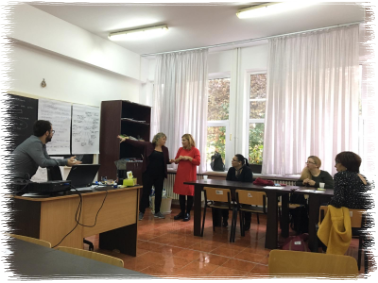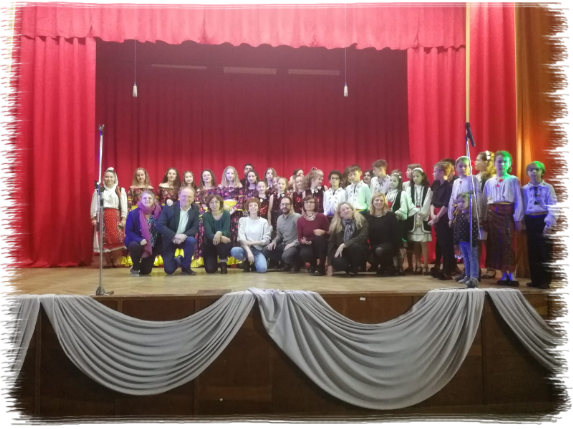Appointments and meetings for 2017 -18 - Helping you work within Europe
Main menu:
Meetings
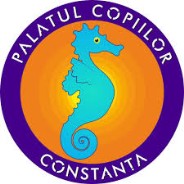


Student Based Approach
Constanta 29th - 30th October 2018
Partners
CPA di G. Bomba Lanciano, Italy is a company that deals with the development of people for work and the opening of opportunities in Europe.
I 5 Sensi Lanciano, Italy is an association that promotes cultural activities.
Palatul Copiilor Constanta, Romania is an organization that helps the school and the family in the education of children.
Kairos Europe London, England is a company that educates young people and adults to improve their knowledge and improve their career prospects.
Complexul Muzeal National “Moldova”, Romania is a national museum in Iasi, Romania.Cresol Association Valencia, Spain is an association that offers services for social, sustainable and supportive development through art and creativity.
Day 1
The host of the third meeting of the WB-TAC project was Palatul Copiilor Constanta. The meeting started with the show presented by the fanfare of institution, activity which welcomed the participants in a very beautiful and warm way. The presentation of the institution showed the participants different nonformal clubs where children may develop their creativity and using their spare time with wonderful activities. The first exercise had the aim to meet one another. The participants received a paper and colours and on a row they had to draw just one item of the person at their leftside at first. Then they switched the drawings and each of them had to add just one feature of the person on the drawing. In the end, the drawing stopped in front of the person represented on it and they could see how they were perceived through the eyes of the others. After the introductory activity, the group has received a flipchart paper and being divided into four groups they had to solve the methods and techniques according to nonformal activities (when, how, why). In the first phase, the participants needed to prepare one learning through problemsolving activity considering the following:
- Analise which stages for the development of learning through a problem-solving activity they need
- Prepare a presentation in which they will explain the activity step by step, what participants will learn, how they will motivate and support them and how they will use available resources.
- Evaluation criteria:
- The phases for development of an activity;
- The group structure and their needs;
- The originality of the idea;
- An educative aspect of the activity;
- Cultural aspect;
- Teamwork.
In the second phase, each team presented their activity and received the feedback from others. The third activity aimed to make participants go through a process of educational activities at Dolphinarium where participants could see shows of the beautiful species of marine animals (dolphins and sea lions) and also visit the other animals. After the visit to Dolphinarium the participants had practical activities. One activity was to transfer a picture on a canvas, other was to draw using shapes and other activities in modelling in the clay and modelling club. The last activity of the first day was an intercultural show presented to the guests by the children of the organisation, a show which emphasized the traditions of the region. The output of both groups was based on the idea to use social media to attract youth to cultural content. On the basis of the group outputs, partners came up with the idea to organise in each
partner country a selfie hunt on some cultural spots, with young people/partners target group.
Partners will agree about the exact day and the activity rules in the following period.
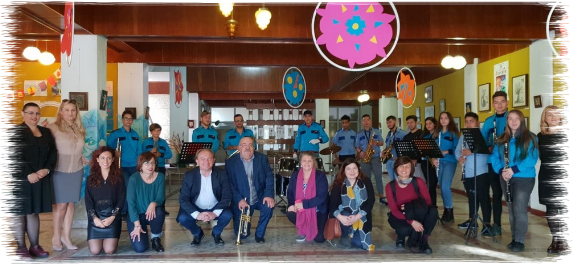
Day 2
The second day of the meeting started with the reflection of the last activity from the previous day. After that, the representative of he project promoter Ms Giuseppina Bomba informed partners about the activity "Selfie Hunt" which will take place in the future, about administrative issues related the project, the problem with Erasmus+ platform, as well as reminded partners about their obligations after the meeting. The next partners meeting is scheduled for 18th and 19th of February 2019 in Spain. The final part of the meeting apart from evaluation and issuing of certificates of attendance were
dedicated to the definition of the learning outcomes of the meeting. The partners were divided into two groups with the task to define the importance of learning through problem-solving for:
- The course
- The sustainability
- The effectiveness
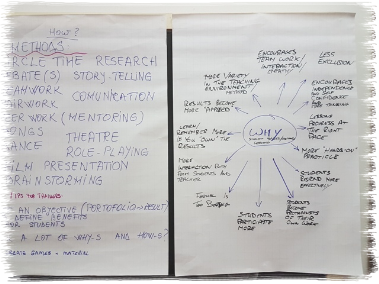
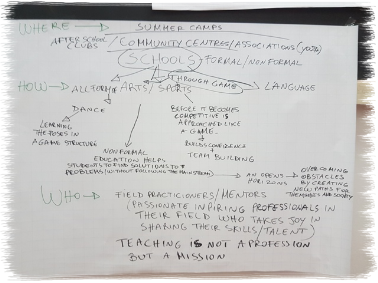
The next partners meeting is scheduled for the 18th and 19th February 2019 in Spain. As agreed on the first partners meeting, the topic of the meeting will be “Learning By Doing”.
